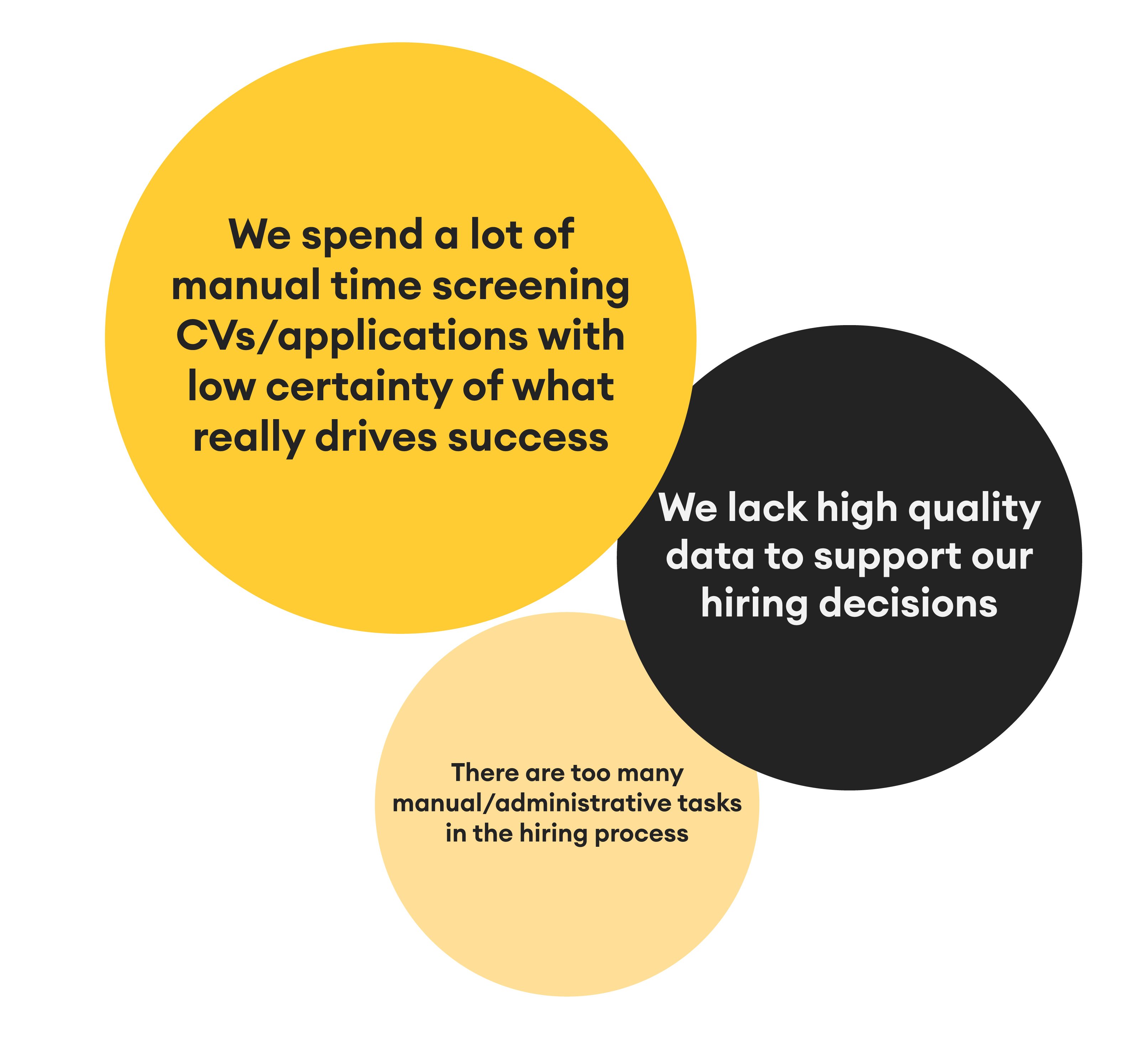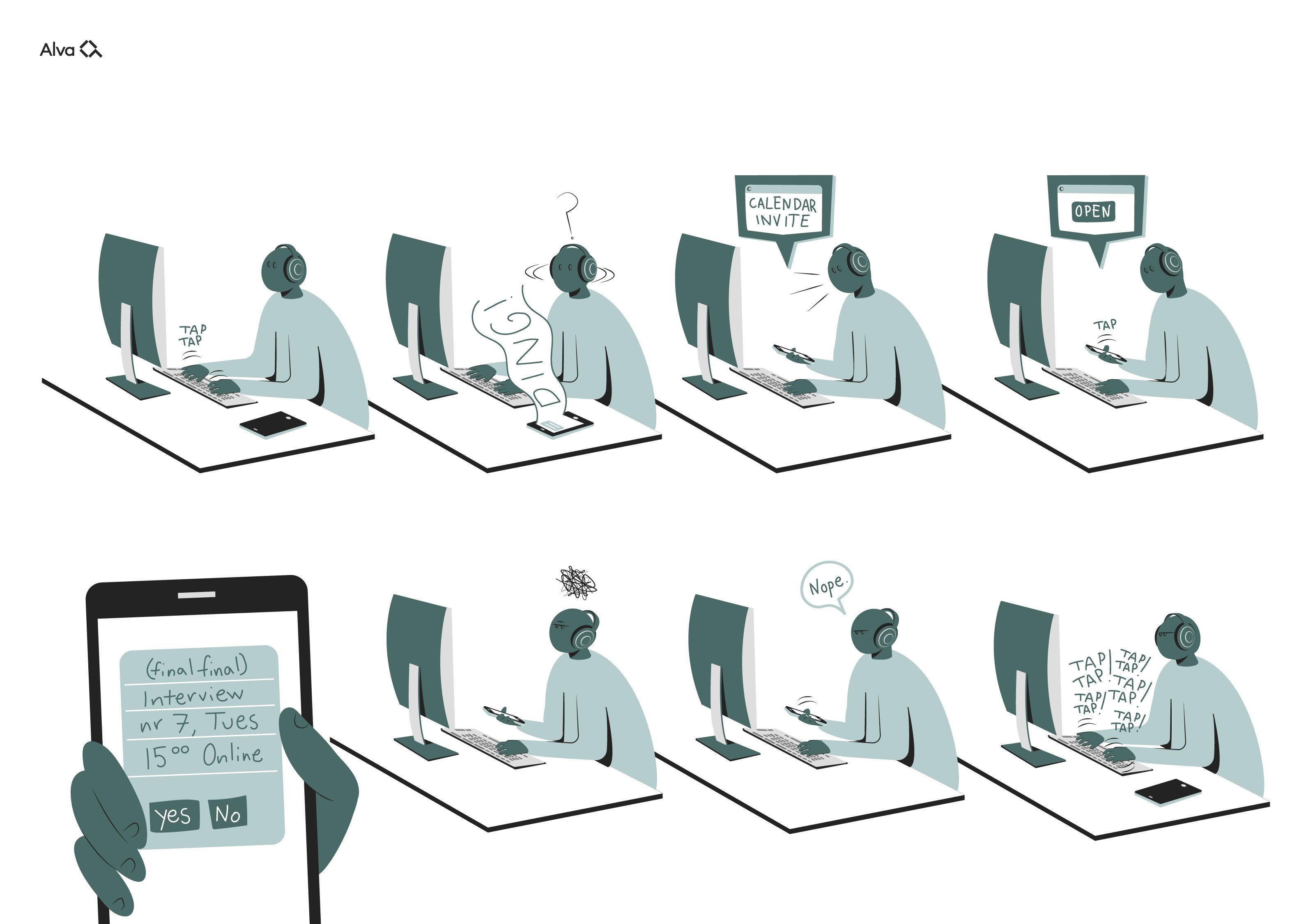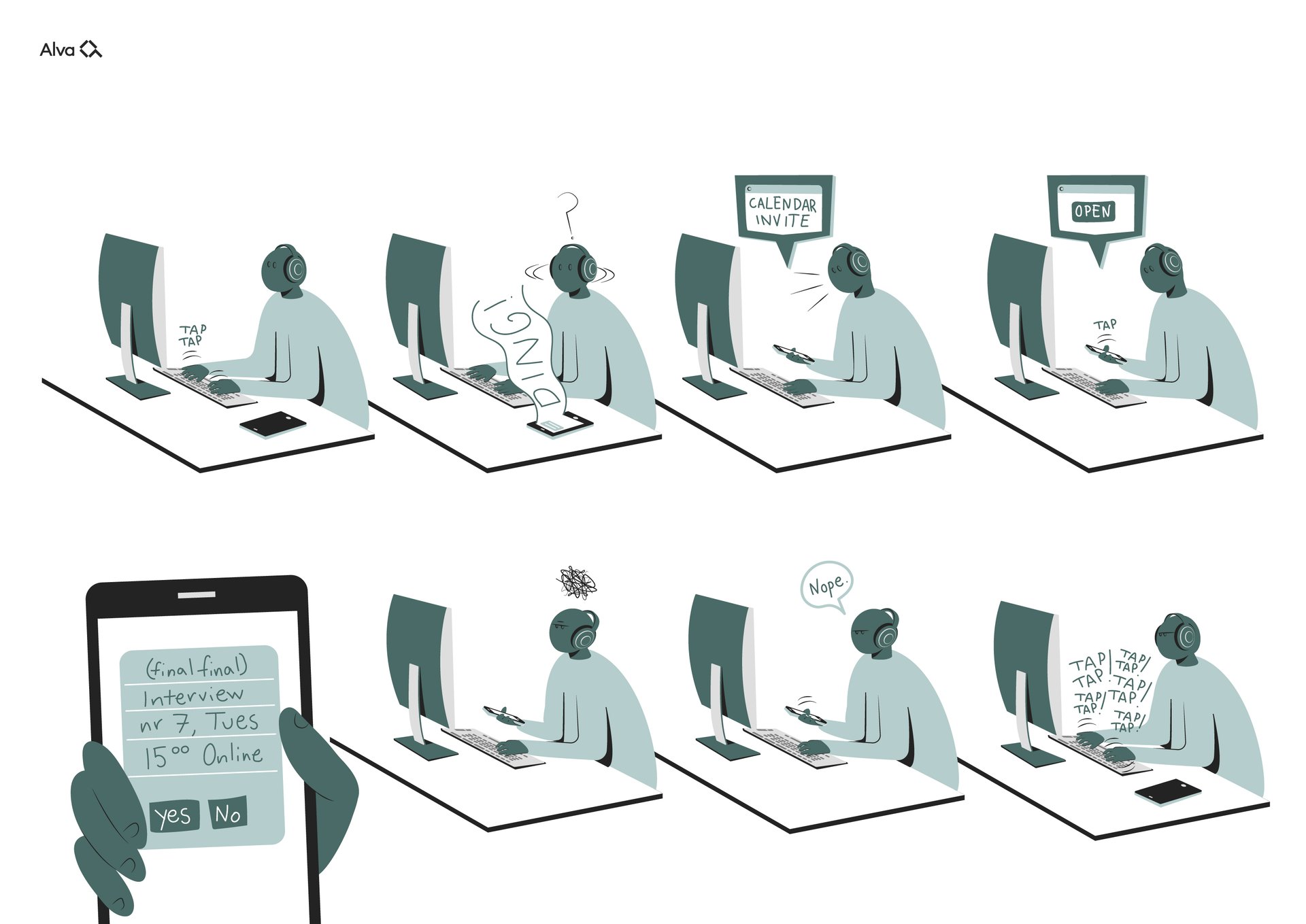Hiring processes are no different. We’ve all been there – we need to make a hire but we’re short on time and there are dozens of other items on our to-do lists all competing for our time, attention and focus. The result is that we’re faced with the difficult decision of whether we optimise for speed or quality.
But what if there was a way to keep time to hire to a minimum without sacrificing on finding the best talent?
How can you grow your confidence as a hiring manager?
I’m new to the HR tech world but I’ve been a hiring manager many times over. I’ve been fortunate to hire for roles in high demand but we all know that that comes with its own set of challenges. It means reviewing hundreds of CVs and – most gut wrenchingly – having low confidence that those I invite for interview are the best candidates for the role.

And it seems I wasn’t alone. When I joined Alva, we had just completed a deep analysis into the most pressing problems that HR leads and Talent Acquisition Managers (TAMs) experience. The number one headache? “We spend a lot of time manually screening CVs with low degree of certainty of what really drives success”.
So it wasn’t just me! then
But what can we do about it?
How do I screen quickly, effectively & open-mindedly?
A reasonable reaction to the problem of low-confidence is to add more steps to the recruitment process so that you’re absolutely certain that you’re making the right hire.
This is a valid strategy but it also adds time to your to-do list, and doesn’t have any scientific basis for proving which candidates are most likely to perform well. In the research, we call this “predictive validity”, aka, “does the tool we’re using do the job of predicting who is most likely to succeed, or not?”.
It’s understandable to want something that backs you up and shares the responsibility with you. After all, when hiring we know that our decisions profoundly impact people’s lives. But adding additional processes to your recruitment strategy can lead to a poor Candidate Experience – one study suggests that 57% of candidates pull out of lengthy recruitment processes.

If you’re looking to increase your talent pool, don’t switch people off before you start.
Do CVs really predict who is most likely to be successful at work?
But, isn’t having fewer candidates at screening a smart strategy? Well, not if we’re looking to increase our talent pools. And more candidates at screening doesn’t necessarily equate to more work for Hiring Managers. The key is to use tools that have high rates of predictive validity,
Researchers Hunter & Schmidt dug into the question “what really predicts success at work” back in 1998. The answer? A combination of accurate testing, structured interviews, case studies and personality testing is all you need.
.png?width=794&name=Alva-labs-selection-methods-job-success-validity%20(1).png)
The chart shows that a work sample is the most predictive tool for predicting success at work. This is all well and good but it’s often incredibly difficult to simulate a real work sample scenario and it’s not a realistic expectation early into a recruitment process.
What do CVs really show us?
Do CVs provide us with a superbasic work sample? Well, that’s the thinking. But a CV is just a document, anything from one to five pages long, that we unintentionally judge for typos, spelling errors, names and faces that don’t sound like ours.
If you’re looking for a tool to increase the breadth of your talent pool, a CV is not fit for purpose - People of Colour have to send in 50% more CVs to receive a callback, and women 30% more than men.
You’re screening out up to 50% of your talent pool, every time.
.jpg?width=1080&name=Infographic_Callbacks%20(1).jpg)
The single best way to improve your chances of finding the right candidate is to use psychometric tests as a first step in the hiring process. But doesn’t that time - time you don’t have - lengthen the process? Nope.
It replaces the manual and often incredibly biased step of sifting through the mountain of CVs on your desk. Meaning? You can spend more time talking to excellent candidates who are more likely to be the right fit, and less time bogged down in administrative tasks.
What predicts success in a candidate?
The beauty of psychometric tests is that you can have your cake and eat it too. If your challenge lies more with sourcing candidates, tests can help you to broaden your candidate pool by allowing you to look past the “demands” that, unnecessarily, restrict your pool of talent.
Arbitrary wishes such as school grades, a fancy university degree, 5 or 3 or 8 years of experience in this or that are scientifically proven to be lousy predictors of job performance yet are cornerstones of the CV.
Think of all the hidden superstars you could speak to just by discarding some of those taken-for-granted hurdles.
While recruitment can feel like Squid Game, a brutal whittling down of hundreds of candidates more based on luck than good judgement until you’re left with one victorious candidate – it needn’t. Testing at scale allows you to hire faster and fairer than ever before.
If you’re looking for more ways to increase strategic processes in your hiring, grab your copy of our Alva Template to Structured Interviews right now 👇👇.






